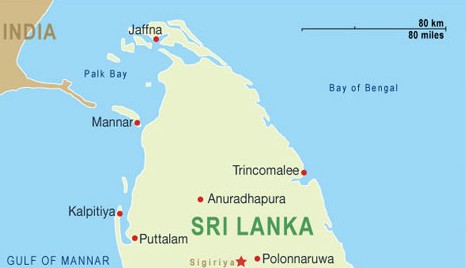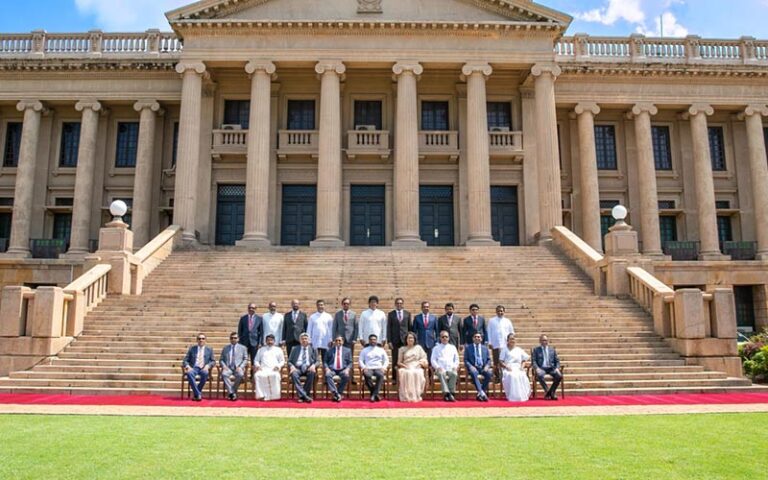 The impending visit of UN High Commissioner for Human Rights, Navanethem Pillay, can be seen as a great opportunity for the government to improve policies and practices as to Human Rights in this country. I can only hope that this opportunity will be taken, and that she will not instead be seen as a threat.
The impending visit of UN High Commissioner for Human Rights, Navanethem Pillay, can be seen as a great opportunity for the government to improve policies and practices as to Human Rights in this country. I can only hope that this opportunity will be taken, and that she will not instead be seen as a threat.
Unfortunately, some indiscretions early in her career have coloured our perceptions of her. Most notably, back in 2009, when the Council was discussing Sri Lanka at a Special Session initiated by the British – and sadly, it now seems from Wikileaks, supported by the Americans, even though at the time we thought the Americans still had the balanced approach to us they had evinced during our eradication of terror – Navi Pillay made a statement designed to put us in the dock.
She may well have believed what she said at the time, but even worse was her continuing condemnation after the Special Session had passed a resolution essentially endorsing the Sri Lankan position. At the next ordinary session she made a statement that seemed to challenge the Resolution passed by the Council. She was roundly rebuked for this by the Indian representative at Geneva, and I am happy to say that after that she did not do anything that could be considered improper.
However the position she represented at the time is now in the ascendant, but we must acknowledge that this is primarily our own fault. First, we threw away the support we had developed in the Council by ignoring our Third World allies. Instead what held sway was the ideas of the Dhanapala groupies in the Ministry of External Affairs, that you cannot trust Africans, that instead of a policy of Non-Alignment we should stick with what is termed our traditional friends in the West (put most aggressively by Dharisha Bastians when she was fighting the corner of the Western group in the Ministry before she fell out with the government), and contempt for India, all of which are against the Foreign Policy a true SLFP government, with its traditional left leaning allies, should have followed.
Sadly, it is now the Liberal Party which most aggressively puts forward these ideas, which might seem ironic were it not that the Bandaranaike Middle Path is what the Liberal Party is about, whereas the SLFP is now pushed into confrontation with almost everybody by its less cosmopolitan allies.
Our second failure is in failing to fulfil swiftly the commitments made, not only in the Council Resolution which we and our friends supported, but also in the Joint Statement of President Rajapaksa together with the Secretary-General of the United Nations, as well as in the Joint Communique with India issued just before. It has now become fashionable amongst the more insidious nationalist enemies of the Sri Lankan people to blame Dayan Jayatilleka for the UN Resolution, but what is found offensive about that is material incorporated from the communiqué for which the Rajapaksas were responsible, and from the Joint Statement for which the President was responsible.
It is nonsense to claim, as these nationalists do, that the President was misled, and to blame Dayan for this. The President, in Kandy at the time, was advised by the Foreign Ministry, and the Secretary at the time, Palitha Kohona, told me that he had cautioned against some elements in the Statement – but not the political commitments about which there was no disagreement – but that the President had instructed them to go ahead. None of his Advisers then pushed him to implementing swiftly what he had agreed to, which led the Secretary General to take action on his own.
The consequences of that action, the Darusman and Petrie reports, are I believe monstrously unfair, not only to Sri Lanka but to the UN system that generally operated well with the Sri Lankan government in the interests of the Sri Lankan people. But since we have not even bothered to refute in detail the claims of those reports – and the Foreign Ministry completely ignored the questions I proposed to them to ask immediately after Darusman came out, precisely because I anticipated the harsher condemnation of the UN that Petrie represents – we cannot complain that they have contributed to two Resolutions in the Human Rights Council which have in effect put us in the dock.
Despite the warning that we received in 2012 we did nothing for nearly a year, except sack Tamara Kunanayagam, whose excellent relations with the Indians and Third World countries were helping to restore the old alliances of 2009 – though her task was made impossible by a massive delegation led by two Ministers who squabbled, and made statements that damaged our cause. It was only swift action by the President’s Secretary that actually got an Action Plan on the table, and then implementation of that was delayed because its architect, Mrs Wijayatilaka, was not even invited to meetings of the Task Force, until its dilatory chief executive was elevated to higher things.
Even now the government should realize, given the terms of the Resolutions, that the most important person Navi Pillay should meet is Mrs Wijayatilaka – but if I know the way the Ministry of External Affairs operates, exacerbated in this instance by the bitter hostility of the Minister to Mrs Wijayatilaka given how he had her removed as Secretary to the Ministry of Justice when she tried to uphold financial probity. So Navi Pillay will not be given the detailed meeting with the LLRC Task Force that is needed.
But I should note that it is possible that will not help. Mrs Wijayatilaka still operates as an instrument of the Presidential Secretariat, which is just too busy to do anything coherently. It has been further weakened now by its most efficient Additional Secretary having also to act as Secretary to the Ministry of Education, given disfunctionalities there – where the headache is solved by changing pillows, three secretaries having to be moved since the 2010 government took office.
The second area of concern to Navi Pillay is Human Rights, but there too we have a black hole. Minister Mahinda Samarasinghe is supposed to be in charge of implementation of the Action Plan, but he is quite powerless as he himself puts it. He appointed me to convene the Task Force to expedite implementation, which was brave of him since I was told that initially Mohan Pieris had expected to have that position too. But though the agencies involved co-operated, actual action was slow, and I had no mandate to push them. We were also handicapped by not having a proper Secretariat, and a few months ago, having first discussed the matter with the Minister, who promised to ask for changes, I resigned when nothing was forthcoming. I have not as yet been replaced.
I do not blame the Minister for not resigning himself, since he is an up and coming young man, with a bright political future, whereas I am in a very different position. But if and when he does meet Navi Pillay, he will have to say exactly what he has been saying for years, and he can no longer present this as the consolidated position of the Sri Lankan government, since he has in fact no mandate for Human Rights, as opposed to talking about them. It is true he is not in the league of the two Pierises as far as the internationals crusading against us are concerned (about whom Patricia Butenis of blessed memory, when I told her not to rely on others but accept what the accredited spokesmen of government said, remarked that the two of them had lost all credibility). But unfortunately it is people like that who Navi Pillay will meet, and Mahinda Samarasinghe cannot commit himself to anything when he meets her that will alleviate her concerns. If only he would put the Bill of Rights on the agenda, as I have long advocated, he might achieve something, but he still remains cautious about that.
Those two areas, in which the government must show action as far as its own Action Plans are concerned, are the most important. But it must also think about ongoing concerns, realizing that we must take remedial action in many areas, not because of Navi Pillay but for our own citizens. While obviously aberrations such as what happened at Weliveriya must be dealt with, we also need a proper framework for action, which is why I continue to believe that things will not get better till we have a Ministry for Human Rights, which could also compass Reconciliation.
If the President will not appoint Mahinda Samarasinghe to this position, he should take it on himself, with Mr Samarasinghe as his Deputy, and more importantly with Mrs Wijayatilaka as Secretary. Mr Samarasinghe can then talk more authoritatively and not keep complaining, and Mrs Wijayatilaka can work even more effectively than she tries to do at present.
By Prof. Rajiva Wijesinha
Source: The Island (Sri Lanka)




